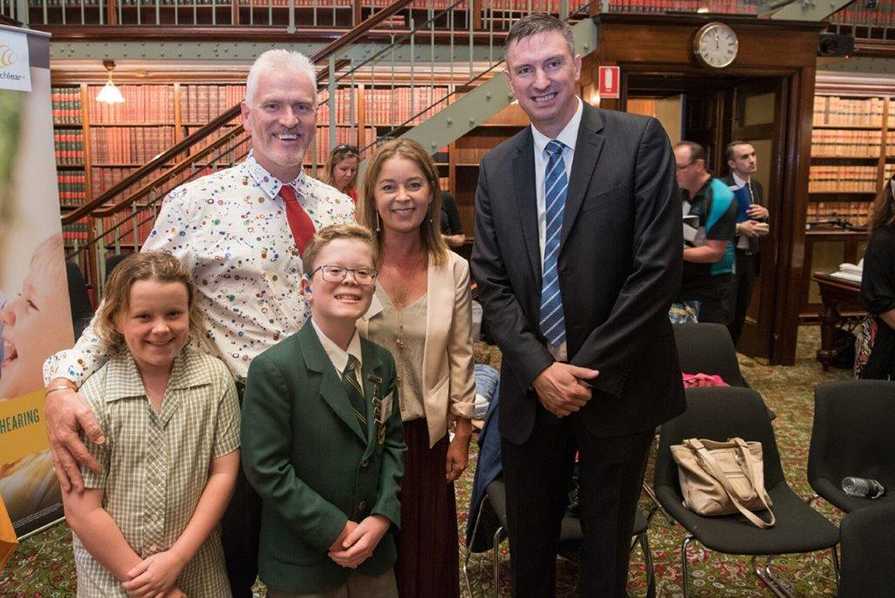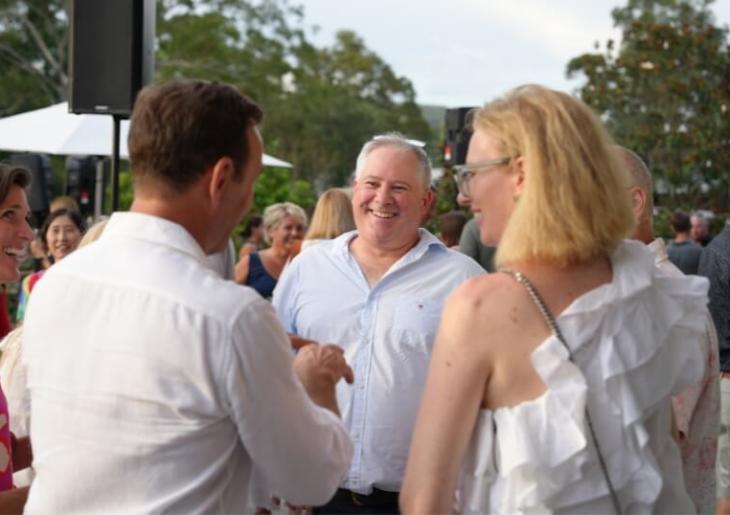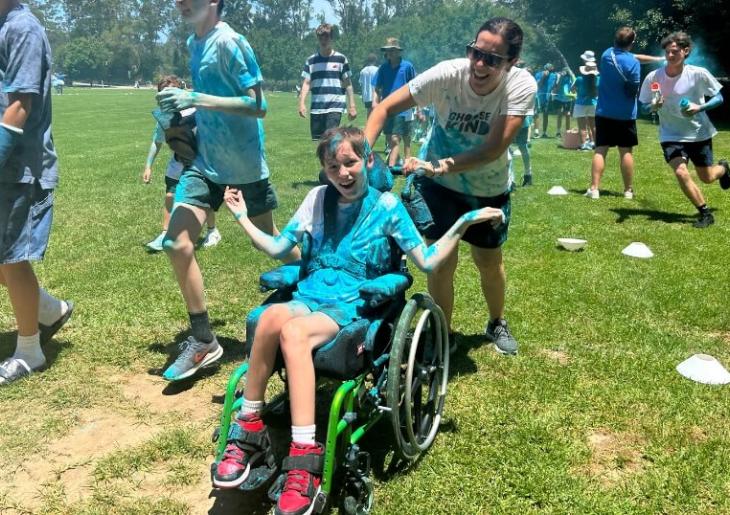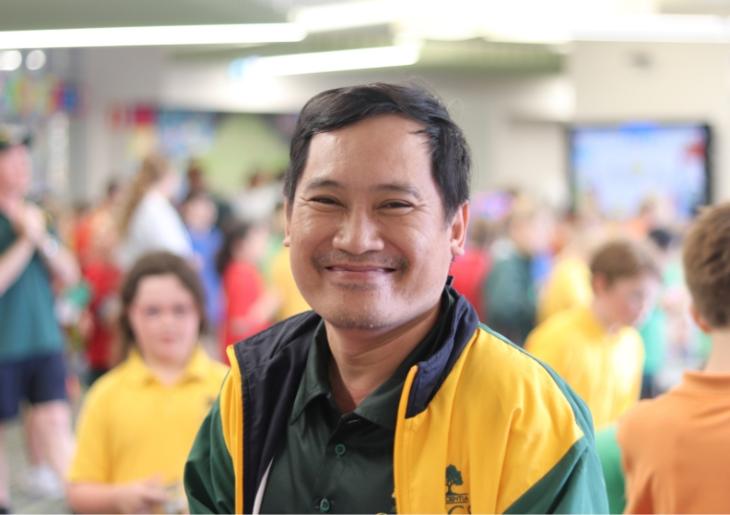Eoin speaks at NSW Parliament
Not many people can say they’ve been invited to speak at the NSW Parliament - especially not at the tender age of 11 - but that’s exactly what Eoin McAweaney (Year 6) did in April.
He was selected, along with five students from other schools, who are hard of hearing or deaf, to share his personal experiences with members of parliament including the Ministers for Health and Disabilities.

Eoin's spoke about some of the challenges he has faced, the importance of self-advocacy and the support of his family and teachers.
Eoin’s speech
“My name is Eoin.
I am deaf.
I am lucky.
I am doing well at my school work. I have a good school life – I play in the junior band, I am part of basketball and soccer teams, a boys dance group, debating and I’m proud to be this year’s Junior Choir captain. I have great friends.
I am lucky because I was born in Australia where I get access to hearing services and the best technology to support my hearing and communications needs.
I have supportive parents who believe in my abilities.
But, most of what I get to do and experience in my life involves more than luck. It involves a great deal of planning and a lot of work from a lot of people.
Listening is hard work for me and it’s not easy. My day to day life feels like a complicated puzzle – each piece has to be in place for me to be able to participate in everything I do and to learn.
If one piece of my equipment fails, if one person fails to get involved, then there is no clear picture for me. For example, if the coach of my basketball doesn’t wear my FM system I can’t hear their instructions or learn how to play.
If I’m debating and the opposition did not pass my microphone to each other at the right time, I can’t hear and there’s no way I can support my team.
If I don’t have captions in the classroom, I miss important information and I don’t learn. If I don’t sit in the right spot, I can’t lip read. If you don’t face me when you’re talking I can’t hear.
Advocacy makes the difference between whether I can, or I can’t, succeed.
When you tell a joke and cover your mouth I won’t get the punchline, and in all of these situations I’m left feeling a failure.
Each day I have to ask, request and remind people of what I need so I can succeed.
I have to go in to bat for myself. I have to ask for a fair go.
This is self-advocacy.
Self-advocacy is speaking up for yourself. It means understanding your rights. It means having to be assertive - often in tricky situations involving adults
Advocacy is a skill – you learn it. It has to be taught and practised.
Advocacy makes the difference between whether I can, or I can’t, succeed.
I depend on the advocacy of my family and teachers because it helps in situations when I feel I have no voice and when adults or teachers “aren’t aware” or “don’t care” about the support I need.
You might be surprised to hear that adults don’t always have time to listen to kids. I feel there is not enough awareness education for them, to help them understand hearing loss and deafness, in NSW and Australia.
It feels like we ourselves must learn the skill of advocacy and our parents and teachers must learn with us and we need organisations and skilled people to teach us. With more support for these organisations like the Shepherd Centre and others here today, backed by the NSW Government supporting my teachers and raise awareness of hearing loss in our communities.
After all we are smart, creative kids with plenty to offer and with the right support we really achieve amazing things.
I am grateful today to have a teacher for the deaf and a school with a learning support department who believe in me and work with me. I’m hopeful that this support network comes with me into high school next year.
I want every deaf and hard of hearing kid to feel this lucky. But it takes more than a luck for us to succeed.”




